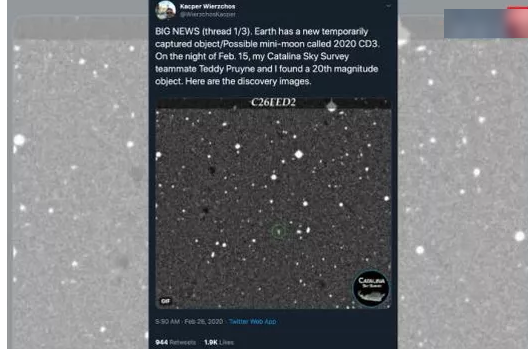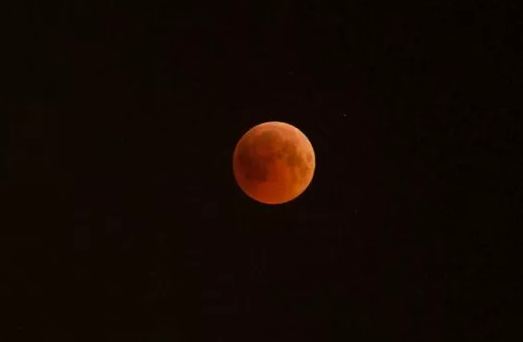We have another mini moon and no one knew it
The researchers say the new and perhaps temporary minimoon is probably between 1.9 meters and 3.5 metres across, which is around the same size as a mid-size car. Incidentally, this isn’t the first-time earth has had an additional moon, albeit temporarily.
We really are having to relearn things these days, aren’t we? Just a day after we got to learn that there is an organism that can survive without oxygen, we are now getting the information that the Earth might have more than one moon. Oh dear, this is all getting a bit much now. Researchers have discovered that an object, now dubbed 2020 CD3, has been gravitationally bound to earth for about three years now. And it is only now that we have discovered it. It was on February 19 that astronomers at the Catalina Sky Survey in Arizona spotted a dim object moving quickly across the sky somewhere close to earth. The same object was then observed by researchers at six more observatories around the world who confirmed the presence of what can now be considered a minimoon. The researchers say the new and perhaps temporary minimoon is probably between 1.9 meters and 3.5 metres across, which is around the same size as a mid-size car.
“Earth has a new temporarily captured object/Possible mini-moon called 2020 CD3. On the night of Feb. 15, my Catalina Sky Survey teammate Teddy Pruyne and I found a 20th magnitude object,” wrote astronomer Kacper Wierzchos on Twitter. He is an astronomer at the University of Arizona-funded Catalina Sky Survey. “Orbit integrations (Gray, Project Pluto; Micheli, ESA NEO Coordination Centre; Naidu, CNEOS; and Spoto, MPC) indicate that this object is temporarily bound to the Earth. No evidence of perturbations due to solar radiation pressure is seen, and no link to a known artificial object has been found,” says The International Astronomical Union’s Mirror Planet Center in an official release. The Mirror Planet Center monitors the presence of small bodies in space. The implication could be that this is an asteroid that was perhaps caught up by the earth’s gravitational pull and has been circling our planet ever since.

Astronomers say that the new minimoon orbit isn’t stable, and the 2020 CD3 could eventually catapult itself away from Earth. “It is heading away from the Earth-moon system as we speak,” says Grigori Fedorets at Queen’s University Belfast in the UK, told the New Scientist. Incidentally, this isn’t the first-time earth has had an additional moon, albeit temporarily. In 2006, the 2006 RH120 remained within the earth’s gravitational pull between September 2006 and June 2007 before it managed to wriggle free. Chances are, this minimoon will too.




